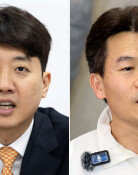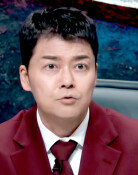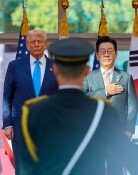Command Transfer Could Isolate Korea
Command Transfer Could Isolate Korea
Posted September. 06, 2006 07:01,
No Guarantee of U.S. Reinforcements in Contingencies-
Numerous former chiefs of the Korean armed forces point out that one of the biggest military problems that would arise from regaining wartime command is the probable delay and difficulty in getting reinforcements from the United States.
This is because under the current system of Korea-U.S. Combined Forces Command (CFC), additional U.S. troops will be dispatched to Korea automatically according to Time-Phased Force and Deployment Data (TPFDD) which lays out the plans for each type of war signal according to OPLAN 5027, a combined operation plan. However, when the Korea-U.S. CFC is dismantled, the Korean armed forces will have to create an OPLAN of their own.
In face of strong anti-war sentiment at home, it will not be easy for the U.S. to send large-scale reinforcement troops to the Korean peninsula when it does not even have the wartime operation control, unless a vital part of its national interests is at stake, remarked Lee Nam-shin, a reserve general.
One former chief who requested to remain anonymous worried that if the Combined Forces Command is dismantled and the two countries end up each with an independent wartime command, the U.S. would follow its constitutional process strictly to decide whether to send in more troops or not when war breaks out on the Korean peninsula, and the U.S. Congress would not easily give its authorization either.
If North Korea uses weapons of mass destruction such as a nuclear missile from the start of the war and we are not able to get speedy help from the U.S. military, the initial damages could well become deadly, which may not be possible to overcome, said Shin Il-soon, another general of the reserve troops.
The Ministry of Defense declared in return that even if Seoul and Washington adopt separate wartime commands, the two countries will maintain a close cooperative system in both war and peacetime, through a Military Cooperation Center.
However, many ex-generals were skeptical about this. A Military Cooperation Center would only be about collaboration, not command and control like the CFC, and it is doubtful actually how binding it would be if contingencies occurred, they criticized.
Independent Korean and U.S. Commands Would Weaken Operational Efficiency
As the basic principle in war is unity of command, a two commander system would inevitably lead to lower efficiency of operations, said a reserve general who had served as the Chairman of the Joint Chiefs of Staff.
Critics also pointed out that the independent wartime command system would see the efficiency and speed of battles declining, as Korea would need to ask the U.S. for help every time the need arose to use the reinforcement troops supplies, while under the Korea-U.S. CFC system the Korean forces can gain access to them without much difficulty.
As the leeway for making a deep strike is short on the Korean peninsula, having an instant command system is important, when we consider what modern warfare is like, said Kim Jae-chang, a former deputy commander of the CFC. Taking back wartime command would pose a serious security crisis.
Korean Forces Cannot Build up Independent Deterrence in 6 Years
The overwhelming opinion was that the Korean military will not be able to secure enough deterrence against North Korea until 2012, the year when the Ministry of Defense plans to takeover the wartime troop control.
In effect, they are saying that buying a few intelligence weapons, like multi-purpose application satellites or airborne warning and control systems (AWACS) does not equal the ability to fight wars independently. It takes more than a few years to be able to fully utilize new high-tech weapons, said a reserve general, formerly the Air Force Chief of Staff.
Several of these previous military officials expressed the concern that it would be very difficult to build in just a few years the C4I (Command, Control, Communication, Computer and Intelligence) system which connect the entire militarys key firepower and manpower, from platoons up to the Joint Chiefs of Staff leadership through the advanced communication network.
The Korean militarys current C4I system is only being pilot tested at army corps level, observed a reserve general, also a former Chief of Staff. Realistically speaking, it is impossible for the Korean forces to build an independent C4I system in a couple of years, when even the world-class Korea-U.S. CFC has to improve its C4I system every year with training.
At the same time, they forecast that wartime operational control takeover would make the additional withdrawal of U.S. troops unavoidable. Taking back the wartime command could end up reducing not only the ground troops but also the air force, a core part of the Korea-U.S. combined forces, a former Air Force Chief, now a general in the reserves, said anxiously.
ysh1005@donga.com







